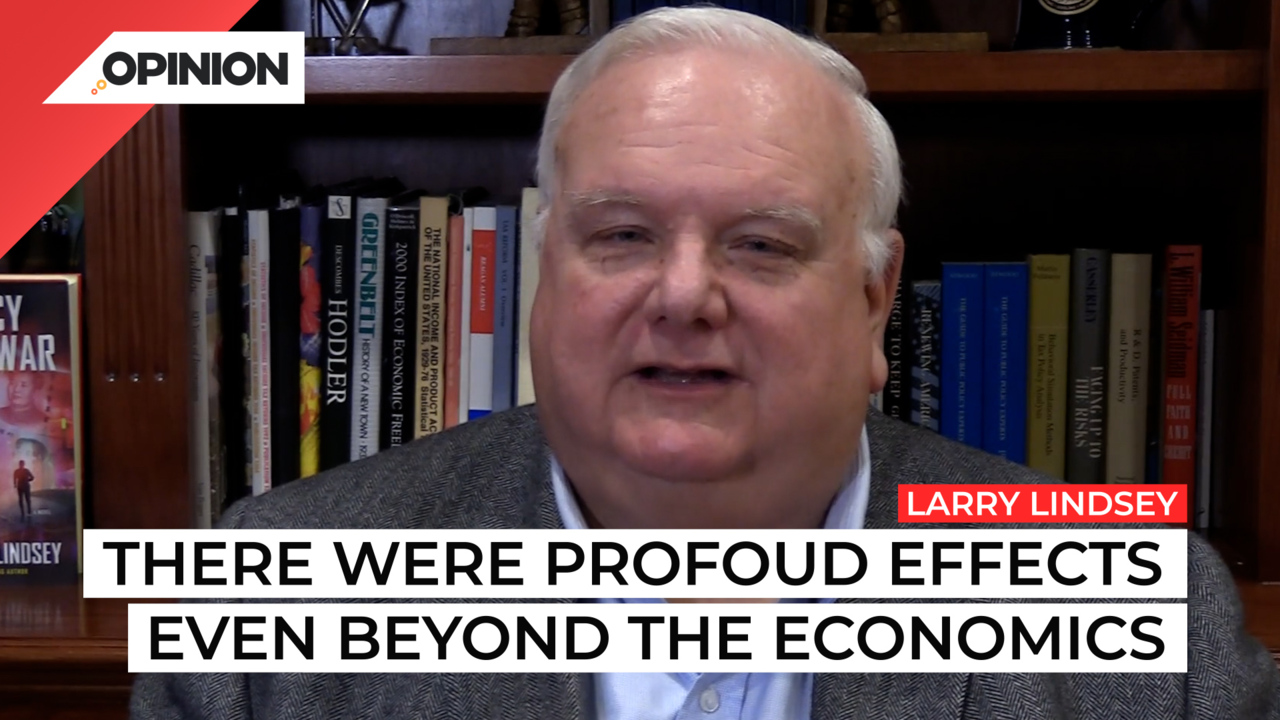
Commentary
-
Our commentary partners will help you reach your own conclusions on complex topics.
You may have heard recently that China is lifting the very draconian lockdowns imposed on its largest city and financial capital Shanghai, in part also on Beijing and other cities in China. Now, there was actually a long political struggle to get to this point. The general party secretary Asian Ping was the architect of their so called Zero COVID policy, where they were going to impose lockdowns until COVID went away. Well, they lifted them when the amount of COVID was down, but it had hardly gone away. The victor in this debate was a gentleman Lane lesion lesion Jiang, excuse me, who by the way, he is an economist, kudos to him. And as the head of state, whereas G Jinping is the head of the Communist Party. You know, the debates go on even in dictatorships, although rarely do they get to be as public as this one. But the effects of the lockdowns were devastating. And that’s what drove Lee to urge them to be removed. China’s official GDP growth target for the year is five and a half percent. The first quarter came in below that at four, eight. And the second quarter, which is when the lock downs really took effect is probably going to come in at 0.0 growth. Now that makes it impossible for them to hit their official growth target. In reality, the Chinese statistics mill, which are rigged may still produce that number. But even for them, it’s going to be a real stretch. This was an economic disaster.
But there were profound effects even beyond the economics. The main one was a breakdown in the social contract between the Communist Party and the people. It goes like this, the Communist Party delivers improving living standards, some modest degree of freedom, in return for which the public doesn’t complain. What the lockdowns did was to keep people locked in their apartment buildings you couldn’t get out there were gates put in front of the apartment buildings, no exit permitted. And a lot of people actually went hungry because there was problems of going you couldn’t go out and get food, you had to hope someone was going to deliver it. This was rough. Now, this was a big abrogation of the social contract in the view of many.
Basically the population of Shanghai, which is the richest city and the financial capital. were being treated like they were inmates in a jail for three or four weeks. The chair of the mental health part of Pudong hospital, had a very good observation. He said, a person learns to navigate the world from a secure base, believing that the reality they know is trustworthy and reliable. The lockdown has caused some to question that, well, this guy isn’t official. So he is actually soft peddling how bad it was. The World Health Organization said that depression and anxiety is widespread in China. The US Department of Defense in something they call their net assessment of the status of their potential opponents actually felt that the army had so much depression in it, that that was going to be a net advantage in a conflict. A Baidu it’s, which is the search engine of China saw a huge spike in searches for mental health services, which are very scarce in China. Chinese culture tends to look askance at these kinds of problems.
Well, what’s going to happen to China? Only time will tell, but the U.S. which had less draconian lockdowns, has a much more developed mental health care state and from the Chinese point of view has a lot of so-called snowflakes here who, you know, complain all the time. In spite of all that, our numbers were really horrible.
In the first two months of the lockdowns back in 2020, the mental health insurance claims issued by teenagers doubled over the previous year. It was a 45% increase in the number of college students reporting major depressive disorders. 25% of adults reported higher drug use or had to be hospitalized for overdoses of drugs. Most scary to me is that hospitalization for child abuse, Rose 35%. And I remember the parents who are bringing their kids to the hospital must be in fear for their lives because they face possible arrest for having closed the abuse. So the fact is, cost benefit analysis is what ended up removing the lock downs in both China and the US started in some states more than others, the ones who lifted the lock downs the first had the best health outcomes. Florida, for example, with a very old population had much better results than did California with a very young population. And it also turned out that the lockdowns were not critical. Bad health outcomes from COVID are the result of age and co-morbidities. The lockdowns did very little to reduce the net effect.
-
Election 2024 will boil down to the Great Lakes states
Pollsters and pundits have been engaged in a long debate about how Biden or Trump might win the 2024 election, with much of their focus spent on the “swing state” electoral battlegrounds. While the winners of Alabama or California may be obvious, for instance, who wins Pennsylvania is a more difficult question. Watch the above…
-
Why the Fed should consider Theory of Reflexivity when fixing policy
The Theory of Reflexivity, often used in the context of economics and financial markets, implies that investors don’t base their decisions on reality but on their perceptions of reality. This creates a feedback loop where investors’ perceptions influence economic fundamentals, which in turn alter investor perceptions. Watch the above video as Straight Arrow News contributor…
-
Federal Reserve surpassed its own wildest expectations
On May 14, the U.S. Bureau of Labor Statistics released the most current producer price index (PPI) report, which showed an increase of 0.5% month-over-month in April. After the report’s release, U.S. Federal Reserve chairman Jerome “Jay” Powell said that while he believes the current policy rate is restrictive by many measures, the Fed needs…
-
Polls give slight advantage to Trump in Electoral College
With the U.S. general election only six months away, leading candidates President Joe Biden and former President Donald Trump appear to be engaged in a very close contest. In their 2020 race, the winner of the Electoral College was ultimately determined by a relative handful of voters in just a few swing states, even though…
-
College sports is big money but not everyone benefits
March Madness has wrapped up and Caitlin Clark has emerged as a household name as well as a wealthy student athlete. Earning over $3 million throughout her college career, her success stands in stark contrast to the previous notion that collegiate athletes shouldn’t earn anything beyond their scholarship. Straight Arrow News contributor Larry Lindsey examines…
Latest Opinions
-
 U.S. Department of Defense
U.S. Department of Defense
Congress still trying to figure out how to reduce wasteful military spending
-
 DVIDS
DVIDS
US Navy, Air Force making waves with new weapons at RIMPAC
-
 Getty Images
Getty Images
Israeli PM Netanyahu meets with Trump at Mar-a-Lago
-
 Getty Images
Getty Images
Growing US nuclear power resurgence reaches the nation’s heartland
-
 Getty Images
Getty Images
Beer from the sun, other solar thermal projects get government funding
Popular Opinions
-
In addition to the facts, we believe it’s vital to hear perspectives from all sides of the political spectrum.


